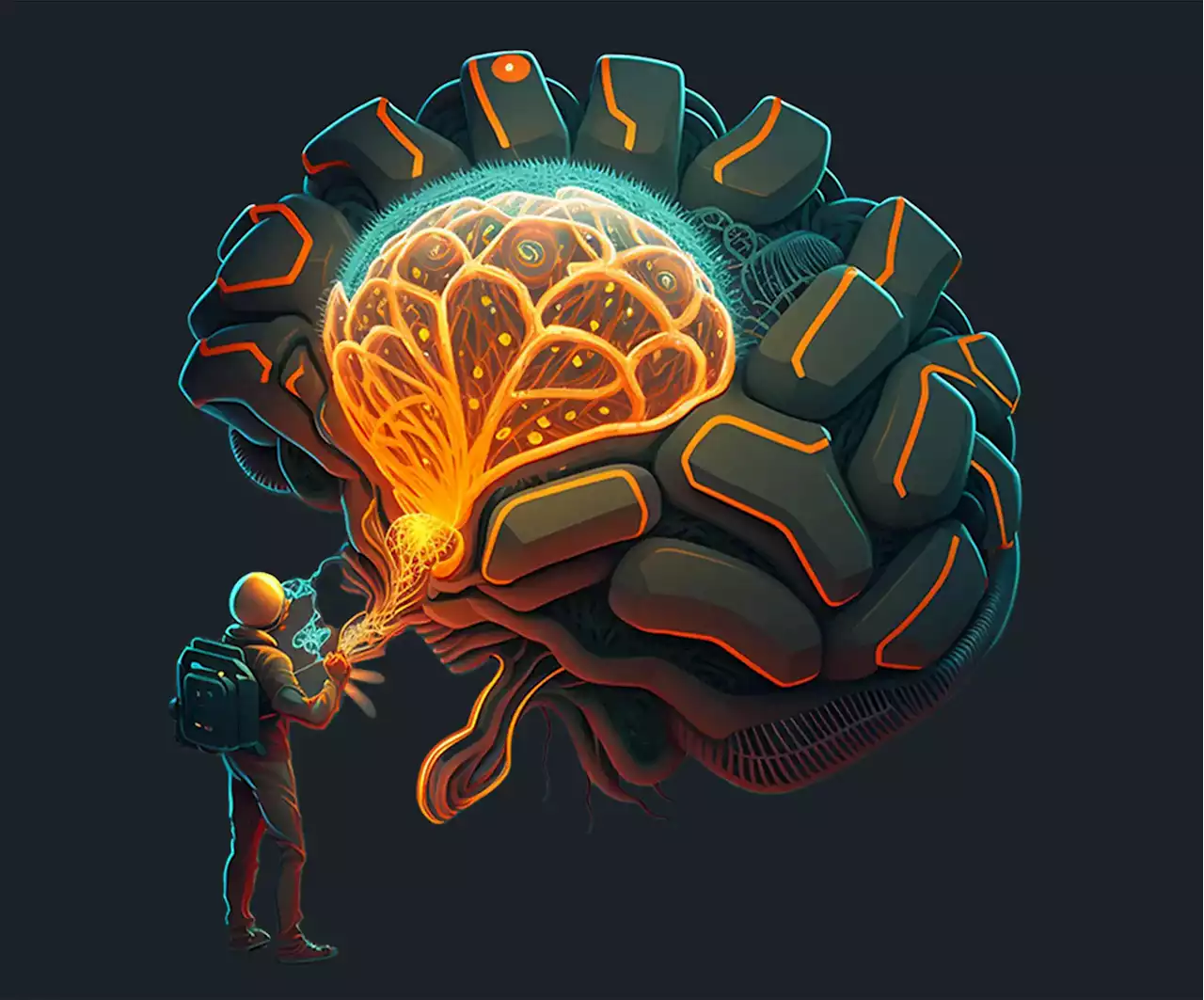The peptide blocks a hyperactive brain enzyme that contributes to the neurodegeneration seen in Alzheimer’s and other diseases. MIT neuroscientists have found a way to reverse neurodegeneration and other symptoms of Alzheimer’s disease by interfering with an enzyme that is typically overactive in
MIT neuroscientists have discovered a method to reverse neurodegeneration and other Alzheimer’s disease symptoms by blocking an overactive enzyme, CDK5, in patients’ brains. Treating mice with a peptide inhibitor, they observed significant reductions in neurodegeneration, DNA damage, and improved cognitive abilities.
With further testing, the researchers hope that the peptide could eventually be used as a treatment for patients with Alzheimer’s disease and other forms of dementia that have CDK5 overactivation. The peptide does not interfere with CDK1, an essential enzyme that is structurally similar to CDK5, and it is similar in size to other peptide drugs that are used in clinical applications.
When bound to P25, CDK5 becomes more active in cells. P25 also allows CDK5 to phosphorylate molecules other than its usual targets, including the Tau protein. Hyperphosphorylated Tau proteins form the neurofibrillary tangles that are one of the characteristic features of Alzheimer’s disease. The MIT team decided to take a different approach to targeting P25, by using a peptide instead of a small molecule. They designed their peptide with a sequence identical to that of a segment of CDK5 known as the T loop, which is a structure critical to the binding of CDK5 to P25. The entire peptide is only 12long — slightly longer than most existing peptide drugs, which are five to 10 amino acids long.
The peptide treatment also produced dramatic improvements in a different mouse model of Alzheimer’s, which has a mutant form of the Tau protein that leads to neurofibrillary tangles. After treatment, those mice showed reductions in both Tau pathologies and neuron loss. Along with those effects in the brain, the researchers also observed behavioral improvements.
“Further development of such peptide inhibitors toward a lead therapeutic candidate, if proven to be selective for the target and relatively free of clinical side effects, may eventually lead to novel treatments for neurodegenerative disorders ranging from Alzheimer’s disease to Frontotemporal dementia to Parkinson’s disease,” says Stuart Lipton, a professor of neuroscience at Scripps Research, who was not involved in the study.
United States Latest News, United States Headlines
Similar News:You can also read news stories similar to this one that we have collected from other news sources.
 Elephant's self-taught banana peeling skill sheds light on the species' remarkable cognitive abilitiesAmazing! Watch this elephant display a high level of intelligence by peeling this banana
Elephant's self-taught banana peeling skill sheds light on the species' remarkable cognitive abilitiesAmazing! Watch this elephant display a high level of intelligence by peeling this banana
Read more »
 Analysis | Trump’s remarkable insinuation about the Nord Stream explosionsAnalysis: Donald Trump has given no indication that he knows anything about the explosions that damaged the Nord Stream natural gas pipelines. Despite this, he and Tucker Carlson would like you to believe that the Biden administration was responsible.
Analysis | Trump’s remarkable insinuation about the Nord Stream explosionsAnalysis: Donald Trump has given no indication that he knows anything about the explosions that damaged the Nord Stream natural gas pipelines. Despite this, he and Tucker Carlson would like you to believe that the Biden administration was responsible.
Read more »
 Mechanical Nanosurgery: How Precision Magnetics Is Tackling Aggressive Brain TumorsMechanical nanosurgery, a new approach developed by scientists at The Hospital for Sick Children and the University of Toronto, uses magnetic carbon nanotubes to target and destroy chemoresistant glioblastoma cells. The technique has potential applications in treating other cancer types by changing
Mechanical Nanosurgery: How Precision Magnetics Is Tackling Aggressive Brain TumorsMechanical nanosurgery, a new approach developed by scientists at The Hospital for Sick Children and the University of Toronto, uses magnetic carbon nanotubes to target and destroy chemoresistant glioblastoma cells. The technique has potential applications in treating other cancer types by changing
Read more »
 New institute for brain, mental health research advances in Texas HouseTexas would launch a new research institute for mental health and brain diseases, seeding it with $3 billion from the state’s huge surplus, under legislation...
New institute for brain, mental health research advances in Texas HouseTexas would launch a new research institute for mental health and brain diseases, seeding it with $3 billion from the state’s huge surplus, under legislation...
Read more »
 Can You Tell These Two Men in the News Apart?My brain is convinced Millie Bobby Brown got engaged to Joe Alwyn.
Can You Tell These Two Men in the News Apart?My brain is convinced Millie Bobby Brown got engaged to Joe Alwyn.
Read more »
 Most still blame the brain, not the gun, for shootingsDespite POTUS’s efforts to blame guns for mass shootings, most people still blame mental health problems, not guns. .Rasmussen_Poll finds when given a choice of six reasons, 42% chose “mental health” & 29% chose “access to firearms” as shooting causes.
Most still blame the brain, not the gun, for shootingsDespite POTUS’s efforts to blame guns for mass shootings, most people still blame mental health problems, not guns. .Rasmussen_Poll finds when given a choice of six reasons, 42% chose “mental health” & 29% chose “access to firearms” as shooting causes.
Read more »
